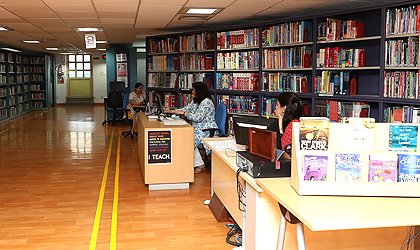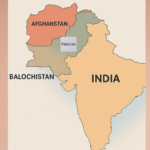Imagine walking into a classroom where the future elite of India—children of Bollywood stars, business tycoons, and global influencers—eagerly await your lesson. At Dhirubhai Ambani International School (DAIS) in Mumbai, this is the reality for teachers shaping young minds in a world-class institution. But what does it take to teach at such a prestigious school, and more importantly, what’s the paycheck like? In this educational guide, we’ll dive deep into the Dhirubhai Ambani International School teacher salary, revealing exclusive insights for 2025. From salary ranges to influencing factors, perks, and career growth, this blog is your ultimate resource for understanding compensation at one of India’s most elite schools. Buckle up for a journey into the world of high-stakes education!
What Is Dhirubhai Ambani International School?
Before we unravel the salary details, let’s set the stage. Dhirubhai Ambani International School, located in Mumbai’s upscale Bandra-Kurla Complex, is a private co-educational institution founded in 2003 by Reliance Industries. Named after the legendary Dhirubhai Ambani, it’s chaired by Nita Ambani and is renowned for educating celebrity kids like Aaradhya Bachchan, AbRam Khan, and Taimur Ali Khan. Affiliated with CISCE, CAIE, and IB, DAIS offers ICSE, IGCSE, and IB Diploma programs, boasting 183 teachers for 1,058 students. Its motto, “Dare to Dream, Learn to Excel,” reflects its commitment to world-class education, making it a magnet for top-tier educators. But what does teaching at this prestigious institution pay, and why does it matter?
Why Dhirubhai Ambani International School Teacher Salary Sparks Curiosity in 2025
The allure of DAIS teacher salaries lies in the school’s elite status and high-profile student body. With over 100,000 annual visitors to Mumbai’s educational hubs, DAIS stands out as a career pinnacle for educators. Posts on X highlight the buzz around its compensation, with users marveling at salaries reportedly ranging from ₹15,000 to ₹50,000 monthly. In 2025, as India’s education sector grows, understanding DAIS teacher salaries offers insights into premium teaching careers. Whether you’re an aspiring educator, a curious parent, or a professional exploring job markets, this guide demystifies the pay structure, drawing from top sources like India.com, AmbitionBox, and Glassdoor.
Historical Context of Teacher Salaries at DAIS
Since its inception in 2003, DAIS has positioned itself as a leader in international education, attracting experienced educators from India and abroad. Historically, teacher salaries at DAIS have been competitive, reflecting the school’s affiliation with Reliance Industries and its focus on quality. Nita Ambani, who once earned ₹800 monthly as a teacher, has emphasized education’s transformative power, shaping DAIS into a hub for professional growth. Over the years, salaries have evolved with inflation, experience levels, and curriculum demands (ICSE, IGCSE, IB). Data from 2024 shows DAIS paying significantly above the national average for teachers, with annual increments and professional development opportunities enhancing its appeal.
Dhirubhai Ambani International School Teacher Salary Breakdown for 2025
Let’s get to the heart of the matter: how much do DAIS teachers earn? Salaries vary by role, experience, and curriculum taught, but here’s a detailed breakdown based on credible sources like Glassdoor, AmbitionBox, and India.com.
Primary Teacher Salary
Annual Salary: ₹7,00,000 to ₹8,00,000
Monthly Take-Home: ₹53,000 to ₹61,000 (after taxes, PF, and insurance)
Details: Primary teachers, handling LKG to Class V, require a B.El.Ed./B.Ed. and 5+ years of experience. The average base salary is ₹7,51,890 annually, with no reported bonuses. This is 354% higher than the average for education companies in India for similar experience (8-23 years).
Secondary School Teacher Salary
Annual Salary: ₹6,00,000 to ₹6,00,000
Monthly Take-Home: ₹45,000 to ₹46,000
Details: Secondary teachers, covering Classes VI-X (ICSE/IGCSE), earn a fixed ₹6,00,006 annually, per Glassdoor. This is 25% higher than the national average of ₹31,458 monthly for teachers. No additional pay like bonuses or tips is reported, but annual appraisals may increase earnings.
IBDP Teacher Salary
Annual Salary: ₹12,00,000 to ₹17,10,000
Monthly Take-Home: ₹93,441 to ₹95,950
Details: IB Diploma Programme teachers, requiring a Master’s degree and 5+ years of experience, command the highest salaries. AmbitionBox reports this range for educators with 8-23 years of experience, with the top 10% earning over ₹17,10,000 annually. These roles are competitive, often filled by expatriates on two-year contracts.
General Teacher Salary Range
Monthly Range: ₹15,000 to ₹50,000
Average Base Salary: ₹42,000 monthly
Details: Across all roles, Glassdoor estimates a broad monthly range, with the average base salary at ₹42,000. This accounts for varying experience levels, from fresh B.Ed. graduates to seasoned IB educators. Additional pay (bonuses, profit-sharing) is minimal, with most compensation tied to base salary.
Expatriate Teacher Salaries
Annual Salary: ₹15,00,000 to ₹22,00,000 (estimated)
Details: Expatriate teachers, often from North America, Europe, or Africa, teach IB and IGCSE curricula. They receive higher salaries, housing allowances, and contract-extension benefits. Exact figures are unpublished, but Glassdoor cites roles like “Teacher” at ₹20,00,000 to ₹22,00,000 annually for international staff.
Factors Influencing DAIS Teacher Salaries
Several factors shape DAIS teacher salaries, making each educator’s pay unique:
Experience: Teachers with 8-23 years of experience earn ₹12,00,000 to ₹17,10,000 annually, while those with 3-8 years may earn ₹14,10,000 to ₹18,10,000.
Qualifications: A Master’s degree, B.Ed., or IB certification boosts pay, especially for IBDP roles.
Curriculum: IB and IGCSE teachers earn more than ICSE teachers due to specialized skills and global demand.
Department: Language departments, like Hindi, may offer slower growth compared to foreign languages or STEM subjects.
Performance: Annual appraisals and professional development, including IB/IGCSE workshops, can lead to increments.
Expatriate Status: International staff receive higher pay and benefits like housing, reflecting their expertise and relocation costs.
Benefits and Perks for DAIS Teachers
Beyond salaries, DAIS offers a robust benefits package, enhancing its appeal:
Professional Development: Teachers attend IB and IGCSE workshops, fully funded by the school, fostering career growth.
Contract Benefits: Expatriates get two-year contracts with housing allowances and extension perks. Indian staff work until superannuation.
Work Environment: Access to a 130,000-square-foot campus with Wi-Fi, air-conditioned classrooms, and labs for Physics, Chemistry, and Arts.
Annual Increments: Salaries increase yearly based on school policy, ensuring steady growth.
Cultural Exposure: Teaching celebrity kids and working with diverse staff from North America, Europe, and India offers unique networking opportunities.
However, reviews on AmbitionBox note challenges, such as high work pressure, slower growth in certain departments, and occasional workplace ambiguity, which may affect job satisfaction.
Comparison with Other International Schools in India
How does DAIS stack up against peers? Here’s a comparison based on AmbitionBox and Quora insights:
The International School Bangalore (TISB): Teachers earn ₹10,00,000 to ₹15,00,000 annually, slightly below DAIS’s IBDP range but competitive for primary roles.
Indus International School, Bangalore: Salaries range from ₹8,00,000 to ₹14,00,000, lower than DAIS for IB teachers but similar for ICSE.
Oberoi International School, Mumbai: Offers ₹9,00,000 to ₹16,00,000, close to DAIS but with fewer expatriate benefits.
FIITJEE Schools, Delhi: Known for high pay in Tier-1 cities, with ₹12,00,000 to ₹18,00,000 for experienced teachers, matching DAIS’s top tier.
DAIS’s salaries are among the highest, especially for IB educators, reflecting its elite status and Reliance backing.
How to Land a Teaching Job at DAIS
Interested in joining DAIS? Here’s how to navigate the process, based on current openings from dais.edu.in:
Qualifications: A Bachelor’s/Master’s degree, B.Ed./D.El.Ed., and 5+ years of experience are mandatory. IB/IGCSE experience is preferred.
Application: Apply via the DAIS careers page, submitting a resume and cover letter. Current openings include Primary Homeroom and IBDP Mathematics teachers.
Interview: Expect rigorous interviews assessing subject expertise, teaching philosophy, and alignment with DAIS’s motto. Command of English is crucial.
Networking: Connect with DAIS staff on LinkedIn or attend education fairs to learn about openings.
Preparation: Highlight international curriculum experience and professional development certifications to stand out.
Career Growth and Salary Progression at DAIS
Salary growth at DAIS depends on performance, experience, and promotions. AmbitionBox notes that teachers with 8-23 years of experience can reach ₹17,10,000 annually, with the top 1% exceeding this. Annual appraisals ensure increments, but growth in departments like Hindi may be slower due to less emphasis compared to STEM or foreign languages. Promotions to roles like House Coordinator or Middle School Coordinator offer salary boosts, with leadership positions potentially exceeding ₹20,00,000 annually. Continuous professional development, including IB workshops, enhances prospects for increments and role advancements.
Challenges and Criticisms of Working at DAIS
While DAIS offers lucrative salaries, employee reviews reveal challenges:
Work Pressure: High expectations and hectic schedules, especially during events like Annual Day, can be overwhelming.
Workplace Dynamics: Some reviews cite a “toxic” atmosphere, with gossip and favoritism affecting morale. Gender parity and professional satisfaction may be lacking.
Department Disparities: Language teachers, particularly in Hindi, face slower growth compared to IB or STEM educators.
Verification Note: Salary data from Glassdoor and AmbitionBox is employee-reported and may vary. For precise figures, contact DAIS directly.
Despite these, the school’s investment in staff development and elite status make it a coveted workplace.
Salary Comparison Table for DAIS Teachers
Role | Annual Salary | Monthly Take-Home | Experience Required |
|---|---|---|---|
Primary Teacher | ₹7,00,000–₹8,00,000 | ₹53,000–₹61,000 | 5+ years, B.Ed. |
Secondary Teacher | ₹6,00,000 | ₹45,000–₹46,000 | 5+ years, B.Ed. |
IBDP Teacher | ₹12,00,000–₹17,10,000 | ₹93,441–₹95,950 | 8-23 years, Master’s |
Expatriate Teacher | ₹15,00,000–₹22,00,000 | ₹1,15,000–₹1,70,000 | IB/IGCSE expertise |
FAQs About Dhirubhai Ambani International School Teacher Salary
What is the average teacher salary at DAIS?
The average base salary is ₹42,000 monthly, with annual ranges from ₹6,00,000 for secondary teachers to ₹17,10,000 for IBDP educators.
How much do IBDP teachers earn at DAIS?
IBDP teachers earn ₹12,00,000 to ₹17,10,000 annually, with monthly take-home salaries of ₹93,441 to ₹95,950 for 8-23 years of experience.
Are there bonuses for DAIS teachers?
No significant bonuses, stock options, or profit-sharing are reported. Compensation is primarily base salary, with annual increments.
How does DAIS teacher salary compare to other schools?
DAIS pays 25% above the national average (₹31,458 monthly) and matches or exceeds peers like TISB and Indus International.
How can I verify DAIS teacher salary data?
Contact DAIS directly or check official job postings, as employee-reported data on Glassdoor and AmbitionBox may vary.
Conclusion: Potential of Teaching at DAIS
Dhirubhai Ambani International School isn’t just a workplace; it’s a gateway to shaping India’s future leaders while earning a competitive salary. From ₹6,00,000 for secondary teachers to ₹17,10,000 for IBDP educators, DAIS offers top-tier compensation, professional growth, and an elite teaching environment. Whether you’re drawn by the prestige, the perks, or the chance to teach star kids, understanding DAIS teacher salaries in 2025 equips you to pursue this dream career. Use this guide to navigate job applications, plan your visit to Mumbai, and join the ranks of educators at India’s premier international school.



